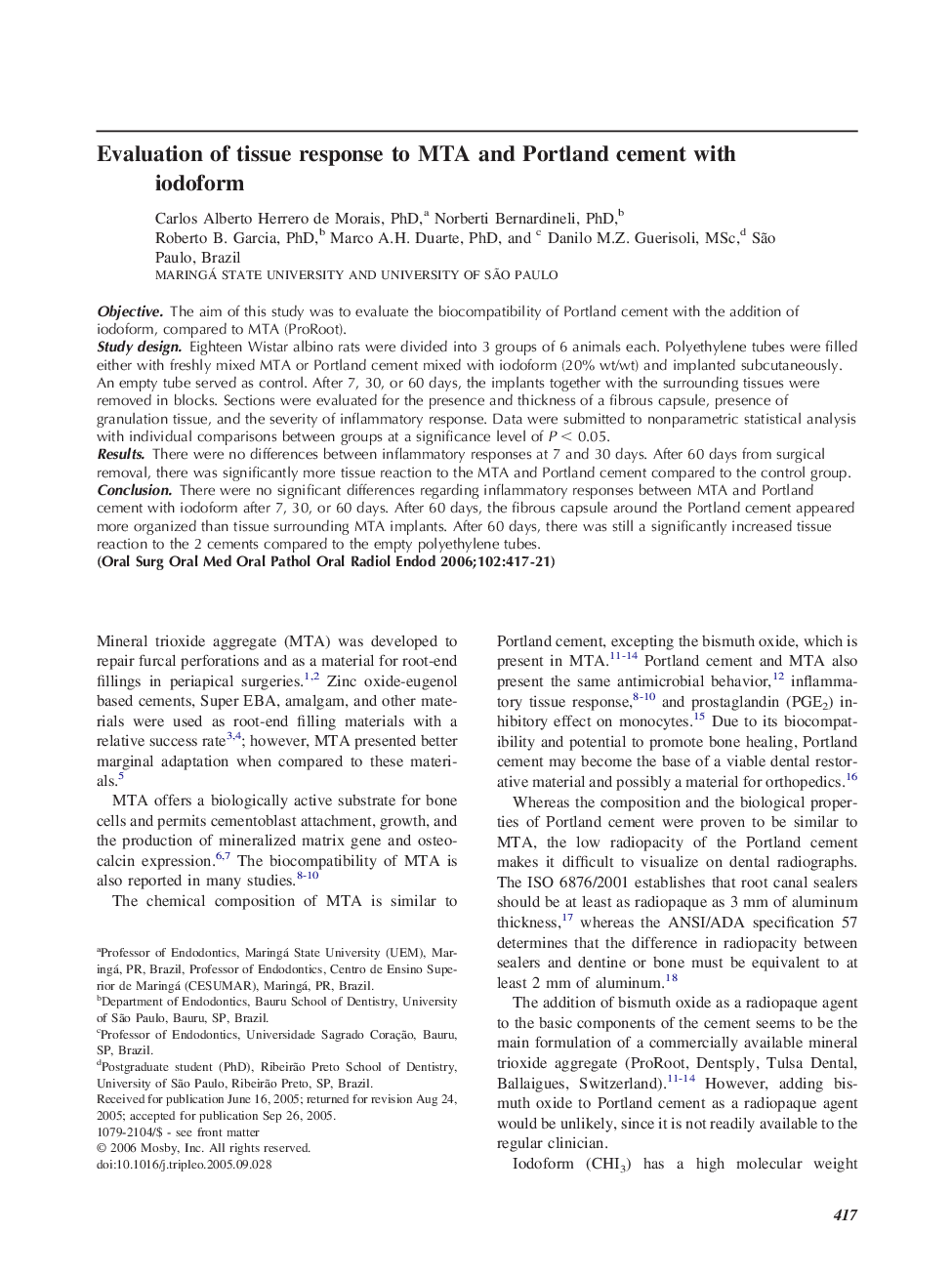| Article ID | Journal | Published Year | Pages | File Type |
|---|---|---|---|---|
| 3169933 | Oral Surgery, Oral Medicine, Oral Pathology, Oral Radiology, and Endodontology | 2006 | 5 Pages |
ObjectiveThe aim of this study was to evaluate the biocompatibility of Portland cement with the addition of iodoform, compared to MTA (ProRoot).Study designEighteen Wistar albino rats were divided into 3 groups of 6 animals each. Polyethylene tubes were filled either with freshly mixed MTA or Portland cement mixed with iodoform (20% wt/wt) and implanted subcutaneously. An empty tube served as control. After 7, 30, or 60 days, the implants together with the surrounding tissues were removed in blocks. Sections were evaluated for the presence and thickness of a fibrous capsule, presence of granulation tissue, and the severity of inflammatory response. Data were submitted to nonparametric statistical analysis with individual comparisons between groups at a significance level of P < 0.05.ResultsThere were no differences between inflammatory responses at 7 and 30 days. After 60 days from surgical removal, there was significantly more tissue reaction to the MTA and Portland cement compared to the control group.ConclusionThere were no significant differences regarding inflammatory responses between MTA and Portland cement with iodoform after 7, 30, or 60 days. After 60 days, the fibrous capsule around the Portland cement appeared more organized than tissue surrounding MTA implants. After 60 days, there was still a significantly increased tissue reaction to the 2 cements compared to the empty polyethylene tubes.
